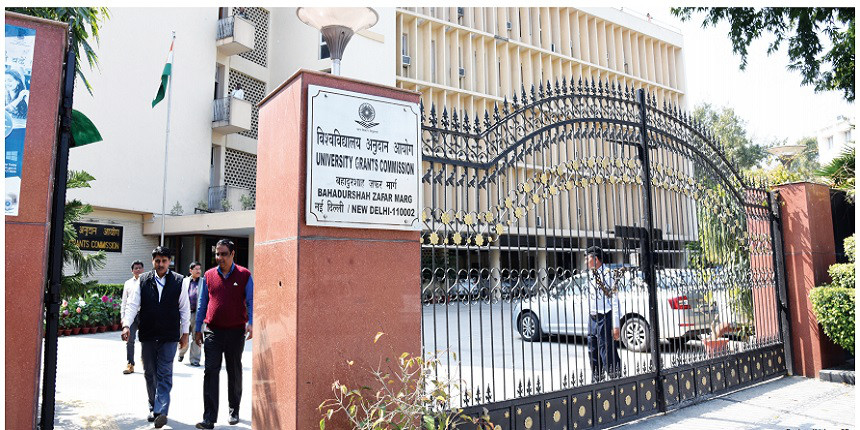NLSIU, IIIT Bhubaneswar among universities yet to appoint ombudsperson; UGC updates defaulters’ list
Vagisha Kaushik | July 3, 2024 | 01:59 PM IST | 2 mins read
46 state, 6 private and 11 deemed universities comprise the UGC list of defaulting universities for not making the appointment.

NEW DELHI: 46 state universities, six private, and 11 deemed universities have not yet appointed ombudspersons, as per the updated list of defaulters issued by the University Grants Commission (UGC). The commission reiterated that the defaulting universities may appoint the ombudspersons as per the UGC (Redressal of Grievances of Students) Regulations, 2023.
As per the list, while the number of state universities has decreased from last month’s 108 to 46 and the tally of private institutions has reduced to six from 47, 11 deemed universities are yet to appoint the person, more than last month when only two were due.
Among the deemed universities are the Indian Institute of Mass Communication (IIMC), National Institutes of Technical Teachers Training & Research (NITTTRs), National Institute of Advanced Manufacturing Technology, Punjab Engineering College. Morarji Desai National Institute of Yoga which featured in last month’s list has not made the appointment yet.
Amity University, Sikkim International University, and Jodhpur National University are some of the private universities which have been termed ‘defaulters’ this time.
The state universities which have not carried out the recruitment so far include Jawaharlal Nehru Technological University (JNTU), National Law School of India University (NLSIU), International Institute of Information Technology (IIIT) Bhubaneswar, Calcutta University, Mahatma Gandhi University, and others.
UGC grievance redressal regulations
Recently, the vice-chancellor of Makhanlal Chaturvedi National University of Journalism and Communication (MCU) found it ‘unfortunate’ to see their name in the defaulters’ list despite making the appointment. The VC asked UGC to update the list citing a delay in the issuance of notification due to the model code of conduct.
In December last year, UGC asked universities to make the appointment by year-end and warned of publishing the names of defaulting universities after the deadline. The UGC regulations were notified in April and the higher education institutions were asked to complete the appointment within a month.
The guidelines mandate all HEIs to form a students grievance redressal committee and appoint an ombudsperson which will listen to and redress complaints of students about admissions, fees, exams, scholarships, harassment etc.
The ombudsperson can be a retired vice-chancellor or a retired professor (who has worked as dean or head of department) having 10 years’ experience as a professor at the universities or is a former district judge. The person will be appointed for three years and will be paid a sitting fee.
Follow us for the latest education news on colleges and universities, admission, courses, exams, research, education policies, study abroad and more..
To get in touch, write to us at news@careers360.com.